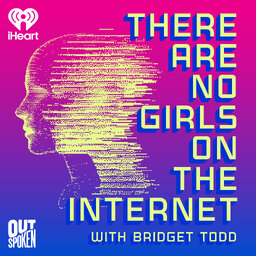Gender Pay Gap Bot calls out performative tweets on International Women's Day (and spreads a little social media chaos along the way)
On International Women's Day, brands unleashed their tweets "celebrating women." But the Gender Pay Gap Bot was here to call out the hypocrisy of companies claiming to champion women while paying them less. We chat with Francessa Lawson, the social media marketer behind the bot.Follow Gender Pay Gap Bot on Twitter: https://twitter.com/PayGapApp
Want to support the show? (thank you!)
Subscribe, tell a friend, leave a review, or buy some merch at There Are No Girls on the Internet’s store: TANGOTI.COM/STOREJoin our newsletter: Tangoti.com/newsletter Say hello at hello@tangoti.com
In 1 playlist(s)
There Are No Girls on the Internet
Marginalized voices have always been at the forefront of the internet, yet our stories often go over…Social links
Follow podcast
Recent clips

Chris Pratt Is Hawking an Anti-Abortion Prayer App; Elon's Grok Is Doxxing Women; DOGE Bros Let ChatGPT Do Their Job; Trump’s Big DEI Loss – NEWS ROUNDUP
1:07:04

Satanic Panic of the 1980s Is Happening Again — This Time in Minnesota Daycares (w/ Sarah Marshall)
51:40

Amazon Ring Super Bowl Ad BACKFIRES; YouTubers Exploit Women's Arrest Videos; Salesforce CEO ICE "Joke" – NEWS ROUNDUP!
1:10:54
 There Are No Girls on the Internet
There Are No Girls on the Internet